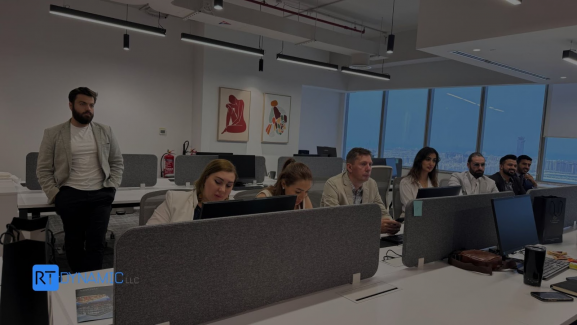Salesforce implementation is an investment but one that will be changing in 2026. With new features, AI, and evolving business needs, Salesforce pricing is more layered than ever.
Whether you’re a small business or an enterprise, planning your CRM implementation budget in 2026 matters. Between licenses, customization, integration, and ongoing support, the costs can add up, quickly. But with the right strategy, you can avoid surprises.
In this guide, we’ll break down the real cost of Salesforce setup in 2026, highlight hidden fees, compare consulting models, and help you budget smarter.
Understanding the Salesforce Pricing Model in 2026
In 2026, Salesforce pricing continues to evolve and it’s getting more layered. You’ll pay for licenses, customization, integrations, and AI tools separately. Let’s break down what to expect for each major product line:
Salesforce Sales Cloud Pricing (2026 Updates)
- Starter Suite starts at $25/user/month, billed annually or monthly.
- Pro Suite runs at $100/user/month with automation, quotes, and forecasting.
- Enterprise Edition is priced at $165/user/month with advanced features and sandbox access.
- Unlimited edition costs $330/user/month, offering full support and AI tools.
- Agentforce 1 Sales bundle is listed at $550/user/month, ideal for AI-first teams.
Salesforce Service Cloud Pricing (2026 Updates)
- Starter Suite begins at $25/user/month, same as Sales Cloud.
- Pro Suite is pegged at $100/user/month, offering real-time service and basic automation.
- Enterprise Service Cloud costs around $175/user/month, more than Sales Cloud due to customer-service features.
- Unlimited service users pay $350/user/month with full platform access and premium support.
Sales + Service Cloud Bundles
- Salesforce offers bundled pricing when you combine Sales and Service Clouds.
- Bundled licenses usually offer a moderate discount versus buying each separately.
- Exact pricing depends on edition and user count, often negotiated at implementation.
Salesforce Marketing Cloud (Licensing Tiers & Starting Prices)
- Account Engagement (Pardot) starts at roughly $1,250/org/month.
- Marketing Cloud Growth Edition starts at $1,500/org/month.
- Premium offerings like Personalization are priced at about $108,000/year.
More Marketing Tools: Data Cloud, Personalization & Engagement
- Data Cloud Services cost around $1,000 per 100k credits, with additional storage from $150/TB.
- Marketing AI credits are approximately $2 per 1,000 AI credits.
- Salesforce Intelligence and Activation cards typically run at $1,000 per 100k segment-activation credits.
Crunching these numbers helps you plan your salesforce setup cost in 2026 more accurately. Licensing makes up the bulk of investment but remember to budget for customization, migration, and integrations too.
What’s Included in Salesforce Implementation?
Salesforce implementation goes far beyond just buying licenses. To actually make the platform work for your business, you need to set it up with your team, processes, and long-term goals in mind. Whether you're a first-timer or switching from another CRM, knowing what’s included helps plan your CRM implementation budget 2026 more accurately.
Here’s what a complete Salesforce implementation typically includes:
- CRM setup and configuration: Initial environment setup, enabling features, setting up objects, and basic platform readiness.
- Business process mapping: Understanding and replicating your actual sales, service, or marketing processes inside Salesforce.
- User roles and security: Assigning permissions, profiles, roles, and access levels across departments.
- Customization and integration: Custom fields, page layouts, flows, and connecting third-party tools like ERPs or marketing platforms.
- Data migration and testing: Moving legacy data, cleaning duplicates, and testing everything before go-live.
- User training: Onboarding employees, training admins, and creating documentation for ongoing use.
- Ongoing support: Post-launch troubleshooting, updates, user management, and future enhancements.
Hidden Costs to Watch for in 2026
Buying Salesforce is just the start. What often surprises teams are the hidden costs that show up after the contract is signed. These extras can quietly inflate your Salesforce implementation cost in 2026 if you’re not prepared.
Here are some commonly overlooked expenses:
- Salesforce consulting rates: Hiring a certified partner costs more than freelancers but brings strategic value. In-house teams may save upfront but often need extra training.
- Sandbox usage and premium support: Full sandboxes and 24/7 support come at an added cost, especially for larger orgs.
- Third-party AppExchange tools: Many features you need like advanced reporting, deduplication, or integrations require paid add-ons.
- Extra user licenses: You might need extra seats for developers, admins, or compliance auditors during testing.
These costs aren’t always obvious during initial budgeting but can make or break your CRM implementation budget 2026.
Comparing Salesforce Implementation Approaches
The team you choose to implement Salesforce will shape your budget, timeline, and results. Each option whether it's a consulting firm, freelancer, or your own team has its pros and trade-offs. Let’s break down what to expect from each path.
Working with a Salesforce Consulting Firm
Many businesses go this route for expertise and speed. It’s best suited for complex needs.
- Pro: Access to certified experts with experience across industries
- Pro: Structured implementation with documentation and support
- Con: Higher cost compared to other methods
- Typical cost: $20,000–$100,000+ depending on scope and integrations
Hiring a Freelance Salesforce Consultant
Ideal for smaller businesses or simpler projects with limited budgets.
- Pro: Flexible pricing and timelines
- Pro: Lower upfront cost than firms
- Con: May lack long-term support or broad expertise
- Typical cost: $75–$175/hour or project rates starting around $8,000
In-house Setup (If You Already Have Admin Resources)
Some teams rely on internal admins, especially if the project is small or non-urgent.
- Pro: Full control and customization over time
- Pro: No external consulting costs
- Con: Slower setup and risk of misconfiguration
- Hidden cost: Time spent learning and troubleshooting may delay ROI
Detailed Cost Breakdown: What to Budget For in 2026
Salesforce implementation isn’t a single fee. It includes setup, customization, integrations, training, and long-term support. Here’s how to break down your CRM implementation budget 2026.
Salesforce Setup Cost 2026
This covers initial CRM configuration, workflows, object setup, and user roles. Most businesses spend $5,000 to $25,000 depending on size and complexity. It’s usually higher for companies without existing CRM structures.
Salesforce Customization Cost
Customization brings Salesforce closer to your actual workflows. Expect $100 to $200/hour, or fixed packages for each feature or module. Costs vary by the depth of automation, UI tweaks, and business logic.
Salesforce Integration Expenses
Connecting Salesforce to external tools increases both cost and capability. Simple integrations via AppExchange might cost a few hundred dollars. Complex APIs and middleware setups can run $10,000 to $50,000+.
Data Migration Cost
Moving your data from legacy systems isn’t always straightforward. Pricing depends on the number of records, data cleanliness, and system types. You’ll likely budget $2,000 to $10,000 for most SMB data migrations.
User Training & CRM Adoption
Training your users well ensures long-term value. In-house sessions are cheaper but less structured. Guided onboarding or formal programs can cost $2,500 to $8,000.
After-launch Support & Admin Cost
Even after going live, ongoing help is critical. Expect to spend on support retainers, admin hours, or managed services. Average companies budget $1,000 to $5,000/month depending on complexity.
Salesforce Cost Optimization Tips
Salesforce pricing 2026 doesn’t have to break your budget or your back, you just need a smarter plan. By focusing on the right features, tools, and service models, you can control costs without losing value. Here’s how to make your investment go further:
- Optimize license tiers: Don’t overpay for features your users won’t use. Assign roles based on need.
- Prioritize features: Launch with essentials first. Phase in customizations later when value is proven.
- AppExchange vs. custom build: Explore apps before building from scratch. Many solve problems for less.
- Use QuickStart packages: Great for small teams or first-time implementations with limited budgets.
- Avoid early over-customization: It adds cost and complexity. Keep it lean at the start.
QuickStart Packages for Budget-Friendly Setup
If you're working with a tight CRM implementation budget in 2026, QuickStart packages are a smart way to go. These pre-scoped implementations help you get Salesforce up and running fast without the overhead of a full-scale project.
Basic QuickStart ($3k–$7k) is ideal for startups or first-time users. It covers essentials like CRM setup, basic workflows, and standard reports. Medium QuickStart ($7k–$12k) suits growing teams that need a bit more like automation, dashboards, and minor customization. Maxi QuickStart ($15k+) works best for larger orgs, especially if you’re using multiple Salesforce Clouds or need cross-team collaboration.
At RT Dynamic, we offer custom Salesforce QuickStart packages tailored to your industry, budget, and business goals for 2026. Get started quickly without cutting corners.
FAQs
How much does Salesforce implementation cost in 2026?
Salesforce implementation costs in 2026 typically range from $5,000 to $100,000+, depending on your CRM complexity, user count, and whether you're using a QuickStart package or a full-scale rollout.
What is the cost of Salesforce customization for my industry?
The cost of Salesforce customization varies by industry and feature scope. Expect to pay $75–$200/hour or $2,000–$20,000+ per module. Complex sectors like finance or healthcare usually require higher customization budgets.
How long does it take to implement Salesforce?
Most Salesforce implementations take 4 to 12 weeks. Large-scale projects with heavy customization or integration can stretch to 6 months or more.
Why is Salesforce considered expensive?
Salesforce pricing includes more than just licenses. Add-ons like data migration, consulting, user training, and third-party tools can drive up total costs if not budgeted early.
How can I reduce my CRM implementation budget in 2026?
Start with a QuickStart package, avoid over-customization early on, and choose the right license tier. Also, evaluate if you truly need premium support or custom apps.
What affects Salesforce integration expenses the most?
The biggest drivers of Salesforce integration expenses are the number of systems, API complexity, and middleware tools used. Industries needing real-time sync or ERP connectors often face higher costs.
Final Thoughts
Salesforce implementation cost in 2026 depends on far more than just licenses. The real investment includes setup, customization, integrations, training, and ongoing support and each of those needs careful planning.
Clear scoping helps avoid surprise costs. Working with certified experts ensures your CRM investment delivers long-term value, not tech debt.
Looking to launch Salesforce in 2026? Talk to RT Dynamic for a cost estimate, tailored implementation plan, and strategic advice to get it right from day one.



